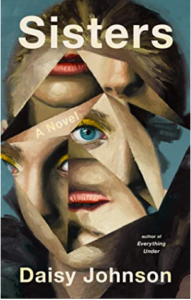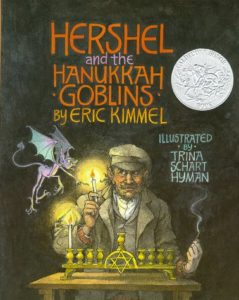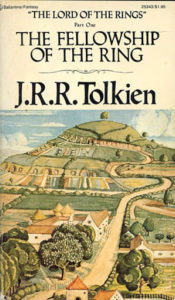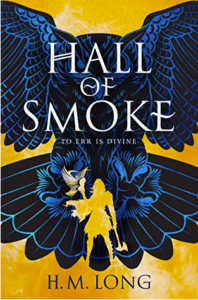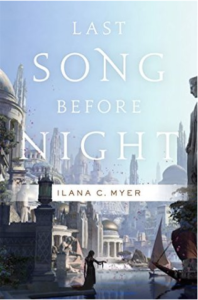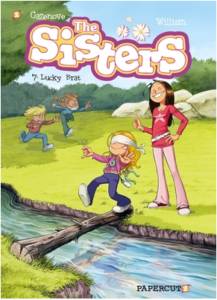Y’all, I read a patently absurd number of books last year. With a final tally of 256 books logged on Goodreads, this was an increase of just under 70 books and over 8000 pages from the year before. On the one hand, I did a much better job of cataloging the graphic novels and children’s books I covered in the course of reading with my kids — tho I’m missing all the excellent No, David books still, as well as at least one art book. On the other, it’s not like there was aught much else to do in this hell year when I couldn’t hang out with my friends and discover fun new restaurants and games. Art and books filled that void for me, and were a very necessary escape from the chaotic mental space that is supervising three small children’s virtual schooling. I was very pleased to discover some brand new favorites, most reviewed on this site but not all. Since I feel like I did a slightly better job of reading new releases this year than previous (and I say this as someone regularly sent ARCs for review,) I’ve decided to organize my Top 12 list of 2020 by publication date, with the more recent ones at the top:
1. Raybearer by Jordan Ifueko (August 18th 2020) — I said it then, I’ll say it again: this book is fucking flawless. Just a perfect YA fantasy novel of a young girl with a toxic mother whose ambitions lead poor Tarisai almost inevitably towards betrayal of those she loves most. Inventive, empathetic and deeply human, Ms Ifueko’s debut novel reimagines fantasy and spins its out again in Afro-centric form, with charm, suspense and just some really terrific writing and world-building.
2. Jane Darrowfield, Professional Busybody by Barbara Ross (June 30th 2020) — Barbara Ross is one of my favorite cozy mystery writers because she never, ever phones it in. Her latest series features a recently retired accountant at a loose end in her life, who realizes that her ability to problem solve might actually be turned into gainful late-life employment. At the behest of a nervous retirement community manager, Jane goes undercover to identify and neutralize the source of the community’s discord, only to find herself faced with murder. How Jane and her friends solve that as well as their own life issues (I cried at one conversation Jane had with her friends near the end) is depicted with heart and wit, making this not only the best cozy of last year for me, but also the most heartfelt work of general fiction featuring an older lead I’ve read all year.
3. Passage West by Rishi Reddi (April 21st, 2020) — This illuminating debut novel of Indian immigrant farmers in California in the early 20th century broke my heart over and over. I wasn’t even aware of the significant presence of Indian migrants in the area at that time, much less how they suffered alongside all the other people marginalized by a white-centric capitalism and government once their usefulness was deemed negligible. I learned so much about this little-discussed chapter of American history, even as I cried my way through pages that only affirmed my belief in the harm done by restrictive immigration laws.
4. My Dark Vanessa by Kate Elizabeth Russell (March 10th, 2020) — Another heartbreaker of a debut, this should be mandatory companion reading for Vladimir Nabokov’s Lolita, as it explores the psyche of a woman who was groomed as a teenager and still views her former relationship as a tragic love story. I love Lolita because it exposes the psychology of a monster: I love MDV because it allows the victim to claim center stage and to process all her own conflicting emotions about what happened and her own role in the proceedings. Dense and complicated, it’s a necessary counterpart to the classic that will hopefully squelch for once and for all this awful notion that Lolita is a romance.
5. Lovers And Writers by Lily King (March 3rd 2020) — A wonderful actual love story is this brilliant Lily King novel. Less about the romantic entanglements of our 31 year-old heroine than about her commitment to the craft of writing, this bildungsroman is a love letter to all the people who were told to put aside their love for books and writing in order to “be practical.” Ms King sees you and loves you, even if she is punching you in the emotions as you read.
6. Dark River by Rym Kechacha (February 24th, 2020) — Another debut novel that had me absolutely captivated, this one compares the eerily similar quests undertaken by two women separated by millennia. Shaye is a Neolithic woman struggling to find the beloved father of her son as her people migrate north for a tribal ceremony. Several decades in the future, Shante is waiting for the visas that will allow her and her family to join her husband north in a city safe, or at least safer, from the devastations of climate change. Both stories are heartbreaking, and I wanted so much to hug and cherish the ones I loved immediately after finishing this haunting book.
7. All-American Muslim Girl by Nadine Jolie Courtney (November 12th, 2019) — Ms Courtney would like to remind you that Muslims, and especially American Muslims, are not a monolith, and that it’s okay for people to be just as faithful as they can be because faith is a matter between each fallible person and their God. It’s a warm, open-hearted book that lightly fictionalizes so many of the dilemmas facing young Muslim women growing up in America today, offering balm and grace for any Muslimah who feels like she just isn’t good enough, and perhaps insight to those outside of the faith as to the ways so many of us really think and feel.
8. Gideon The Ninth by Tamsyn Muir (September 10th, 2019) — Honestly, I would marry this book if I could. It’s a sci-fi tale of lesbian necromancers who find themselves trapped in a rivalry for divine favor with the scions of other houses/planets, which quickly morphs into a manor house murder mystery as the contestants get killed off one by one, agilely written by a whip-smart author plugged into pop culture who isn’t afraid to make demands of us readers to keep up, to figure things out as she takes us on one hell of a ride. I didn’t like the sequel, Harrow The Ninth, quite as much, but that’s asking a lot of the follow-up to a book I would marry. That said, my current Twitter avatar is Harrow, so.
9. Die Vol 1: Fantasy Heartbreaker by Kieron Gillen, Stephanie Hans & Clayton Cowles (June 5th 2019) — I finished this book and immediately e-mailed my oldest RPG-playing friend raving about it, which should give you some idea how deeply this struck a chord. A group of six teenagers accidentally get sucked into a D&D-type world: two years later, only five of them return. Twenty-five years later, they find a way to go back in and rescue their lost friend, but the intervening decades have not been kind. An absolute gem of a graphic novel, this one might have more resonance for gamers than non.
10. Front Desk by Kelly Yang (May 29th, 2018) — I borrowed this from my then-8-year-old, who’d borrowed it from his teacher, and oh how deeply affected I was by this middle-grade account of a young Chinese immigrant adjusting to life in America, moreso than I’ve been of books with similar themes written by adults. I cried a lot more than my kid did reading this — he probably thinks I’m a soft touch, and he’s a Pisces who self-describes as sensitive — but in fairness, my 8 year-old self probably wouldn’t have felt the same hurts either. Ms Yang also published the excellent Parachutes in 2020 but Front Desk was the better read for me.
11. The Cruel Prince by Holly Black (January 2nd, 2018) — I did not think this book could live up to its hype, and boy, was I wrong! Smart, savage and seductive, the way Jude learns to survive and thrive in the Courts of Faerie is a triumph of (court) political fiction. With compelling prose and plotting, Ms Black writes circles around anyone who thinks they know how to write political intrigue, never mind fairy fantasies. I very badly need to find time to read the sequels, hopefully sooner than later!
12. The Long Way To A Small, Angry Planet by Becky Chambers (July 29th, 2014) — Probably the most addictive read on this list, I gobbled up all 500-odd pages in a day, so delightful was it to be in Ms Chambers’ beautifully thought-out future, following the ragtag crew of a mining spaceship as they go on a lucrative but potentially dangerous job. I also read the next two books in the series the same year, as well as her Hugo-nominated novella To Be Taught, If Fortunate, and while I really enjoyed Record Of A Spaceborn Few, her debut novel is still my favorite of her works.
The biggest commonality of my Top 12 list is an astonishing capacity for empathy, that kind that can make you both laugh and cry in the same book, followed closely by truly intelligent, audacious plotting. I am genuinely surprised that there is only one male author here, with one male letterer, but am pleased to have discovered so many brilliant new female creators from all over the world, from so many diverse backgrounds and heritages.
I also want to mention several more books published in 2020 that I’m still thinking about as the year turns. Shveta Thakrar’s Star Daughter is a terrific YA fantasy novel featuring a cast of smart, mature kids struggling with the knowledge that Hindu mythology is real. David Heska Wanbli Weiden’s debut noir novel Winter Counts is a searing portrayal of modern life on and around the Rosebud Indian Reservation. Sharon Doering’s She Lies Close is an absolutely bonkers deep dive into the brain of a woman who becomes obsessed with a child abduction, a topic that only feels more and more relevant as mainstream American politics becomes further undermined by lunatic conspiracy theories. Finally, Samantha Downing’s He Started It is a murder mystery and family drama that asks the important questions at the heart of all storytelling: who gets to tell stories and whose stories are considered to matter?
In all honesty, and despite the stress I sometimes went through trying to tackle it all, it was a great year for reading. Here’s hoping 2021 brings us all more books to delight and astonish!
 It’s widely known that America is falling behind the rest of the world’s leading countries/regions in educational standards while, perhaps less well known, still spending far more than our counterparts. Dr Berens convincingly lays out why this is happening, while also suggesting what to do about it. Granted, what to do about it happens to be a plug for her own institutions/models of learning, but this shallow vein of capitalization is ultimately superseded by the fact that she’s putting her money where her mouth is and has the science to back it up.
It’s widely known that America is falling behind the rest of the world’s leading countries/regions in educational standards while, perhaps less well known, still spending far more than our counterparts. Dr Berens convincingly lays out why this is happening, while also suggesting what to do about it. Granted, what to do about it happens to be a plug for her own institutions/models of learning, but this shallow vein of capitalization is ultimately superseded by the fact that she’s putting her money where her mouth is and has the science to back it up.
